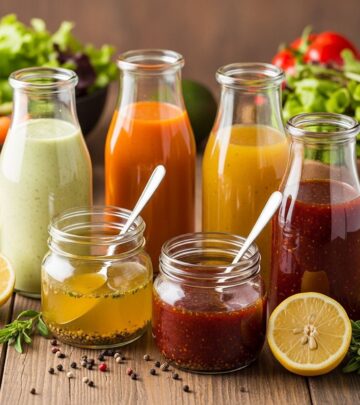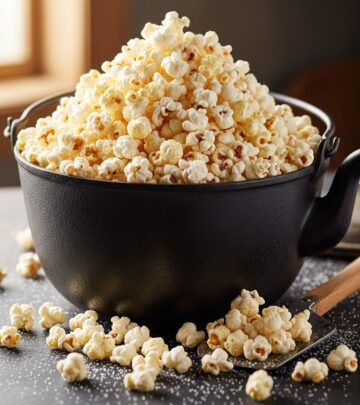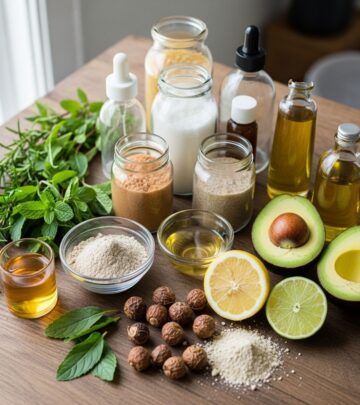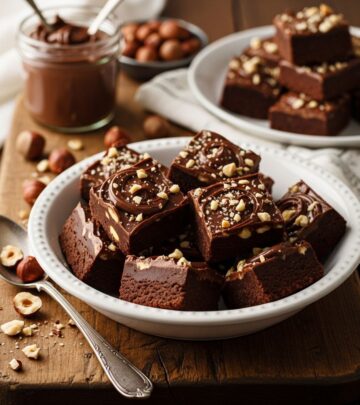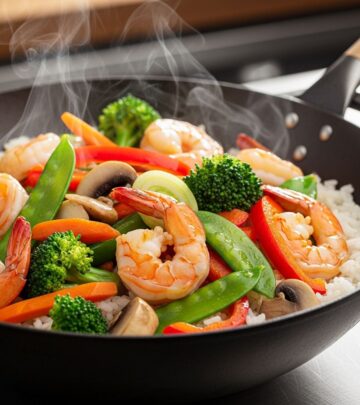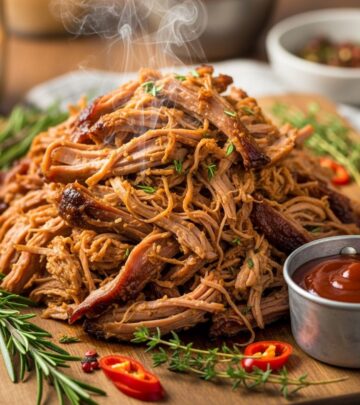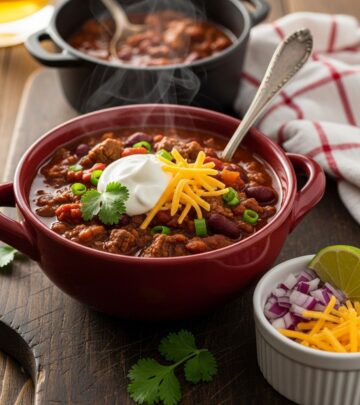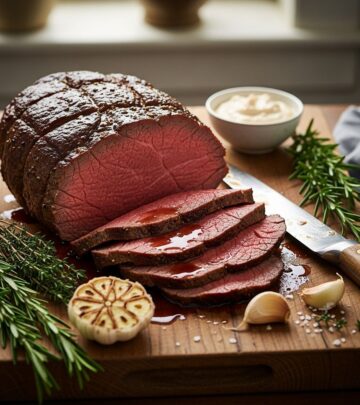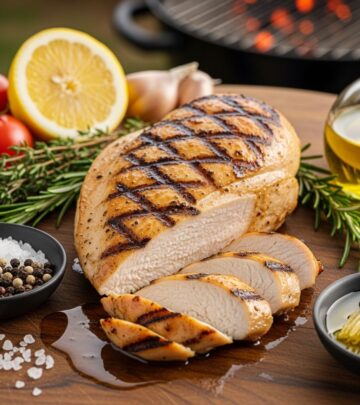Rachel Baron: Food Writing, Curiosity, and Culinary Influence
A journey through culinary narratives that reshape how we connect with what we eat.
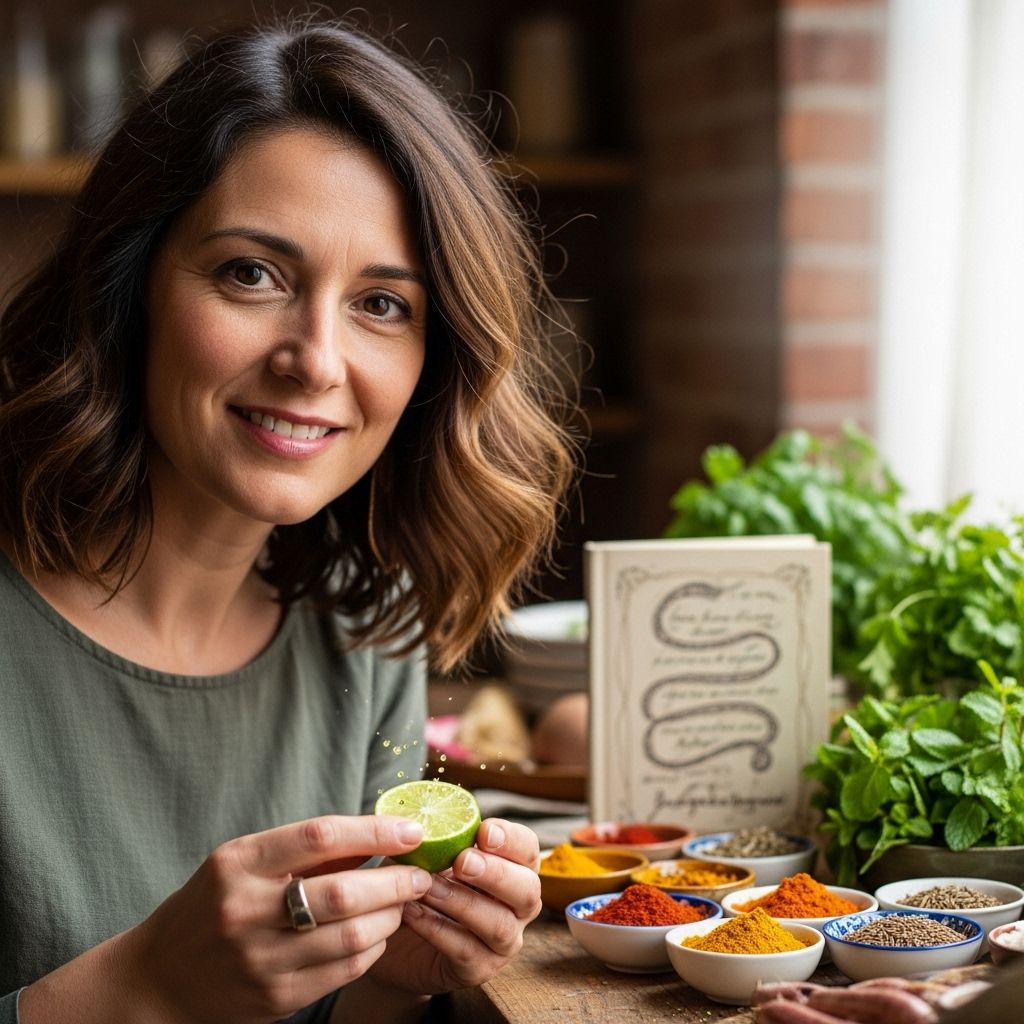
Rachel Baron: Inquisitive Storytelling in Food and Culture
Rachel Baron’s work sits at the intersection of food, language, and culture, urging readers to think deeply about what—and how—we eat. As a Brooklyn-based food and culture writer, she takes on questions that others often overlook, exploring everything from the foreign language barriers in cookbooks to the liberating philosophy of chaos cooking. Her distinct voice and analytical eye have made her a noteworthy contributor to influential publications such as The Washington Post, Vogue, Serious Eats, Food52, and Eater. This article dives deep into Rachel Baron’s journey, her writing philosophy, and her growing impact on culinary discourse.
Early Influences and the Path to Food Writing
Baron’s fascination with culture and food was evident early in her career. Driven by curiosity, she explored the reasons behind everyday culinary phenomena and the narratives that shape them. Her path into food writing was less about following established recipes and more about asking critical questions:
- Why do foreign-language characters and words take so long to appear in English cookbooks?
- How can experimental approaches like chaos cooking offer deeper emotional or cultural insight?
This foundational curiosity set her apart in an industry often content with surface-level answers, informing her ongoing commitment to nuanced, investigative food writing.
Featured Influences and Major Outlets
Rachel Baron has become a recognizable byline across a range of print and digital publishers that value depth, originality, and cultural context. Her writing has appeared in:
- The Washington Post
- Vogue
- Serious Eats
- Food52
- Eater
- The Counter
In addition to her freelance feature writing, Baron has contributed as an editorial assistant to Hearst Lifestyle Food Group and produced SEO-focused branded content for industry names like Made In Cookware. This breadth reflects her adaptability—equally skilled at narrative feature writing, editorial production, and commercial food messaging.
Signature Themes in Rachel Baron’s Writing
What unifies Baron’s work is a core set of guiding questions and topics. She investigates the barriers in food communication, especially when recipes and cookbooks serve diverse and multilingual audiences. This often means exploring:
- Language in Cookbooks: Baron examines why foreign language characters, words, and expressions have historically been left out of mainstream English-language cookbooks. Through interviews and essays, she interrogates the gatekeeping inherent in food publishing and advocates for more authentic, culturally accurate representations.
- Embracing Chaos in Cooking: In her interviews and columns—such as the notable “Chaos Cooking” conversation with Samin Nosrat—Baron challenges traditions that label improvisational or unstructured cooking as inferior. Instead, she celebrates its role in creativity and personal expression.
- Food, Identity, and Belonging: From discussing pancakes to exploring the evolution of beets in contemporary cuisine, Baron investigates how food shapes, and is shaped by, identity and community.
Select Accomplishments: Interviews and Recognition
Baron’s perspective has resonated with not just readers but other figures in food media. Her major milestones and appearances include:
- 2025: Her article on food culture, originally for Serious Eats, was reprinted in the Culinary Historians of Southern California’s Winter 2025 newsletter—a recognition of the lasting relevance of her analysis.
- 2023: Invited to the Slate podcast How To! for a discussion on “How To ‘Chaos Cook’ with Samin Nosrat,” exemplifying her place at the forefront of food culture conversations.
- 2022: Featured interviewee on the KCRW show Good Food, where she explored the intersection of foreign characters, pancakes, and the evolving meanings of traditional ingredients like beets.
- 2021: Her article for The Counter was highlighted in the Reimagined newsletter’s “What We’re Reading” list, further validating the impact of her work in critical food discourse.
Writing Approach and Philosophy
Rachel Baron’s methodology is anchored in research, open inquiry, and a willingness to disrupt culinary conventions. She cultivates insight through:
- Research-Driven Storytelling: She goes beyond the surface, investigating not only the “what” but the “why” and “how” of food trends and culinary practices.
- Cultural Context: Her exploration frames recipes and techniques within broader discussions of language, accessibility, and shifting cultural values.
- Advocacy for Inclusiveness: By dissecting cookbook language barriers and spotlighting underrepresented voices, Baron models a more inclusive, pluralistic food world.
This distinct philosophy is evident in the narrative flow and argumentation of her feature essays. Her willingness to challenge orthodoxy, while maintaining respect for culinary history and tradition, marks her as a thoughtful contributor in contemporary food media.
Major Publications and Contribution Highlights
Baron is notable for published work spanning essay, interview, and editorial review formats. Key contributions include:
- Serious Eats: Exploring cookbook language, cultural access, and the narratives that shape modern recipe writing.
- The Counter: Pieces delving into the social dynamics of food trends, highlighted by anti-racism and equity advocate newsletters.
- Food52, Eater, Vogue, Washington Post: Essays that challenge, clarify, and deepen readers’ understanding of the intersections between food, identity, and communication.
Her versatile byline and strong editorial background position her as a trusted authority in both mainstream and specialized food writing circles.
Table: Rachel Baron’s Milestones & Signature Topics
| Year | Milestone | Topic/Theme |
|---|---|---|
| 2025 | Article reprinted in CHSCA newsletter | Food history and culture |
| 2023 | Featured on Slate’s How To! podcast | Chaos cooking, flexibility in the kitchen |
| 2022 | Radio interview, KCRW Good Food | Foreign language in cookbooks, food identity |
| 2021 | Article highlighted in Reimagined | Food equity, narrative disruption |
Impact in the Food Writing World
By tackling both technical and cultural questions, Baron advances a more thoughtful conversation about food writing. Her impact can be assessed through:
- Cultural Relevance: Her work is cited by culinary historians and read by broad, engaged audiences.
- Media Presence: Popular platforms seek her voice for commentary on emerging trends and complex issues.
- Peer Recognition: Continued invitations to interviews, panels, and editorial projects reflect the respect she’s earned among fellow writers and editors.
Chaos Cooking: A Philosophy for Liberation
In her exploration of “chaos cooking,” Baron recognizes the creative, even therapeutic, power of breaking from strict culinary rules.
Key points include:
- Chaos cooking allows for improvisation, adaptation, and joy—challenging the notion that only precise, traditional recipes deserve space in cookbooks or on kitchen tables.
- Her discussion with Samin Nosrat brought this philosophy to a wider audience, suggesting that home cooks can find peace and satisfaction by letting go of perfectionism.
- This philosophy reflects her broader approach: food is both deeply personal and powerfully communal, shaped by experimentation as much as heritage.
Cultural Discussion: Language Barriers in Cookbooks
Baron is especially vocal about the slow integration of non-English characters and culturally specific terminology in mainstream English-language cookbooks.
She argues for:
- Authentic language use to convey precise meaning and preserve cultural context.
- Reducing editorial gatekeeping that strips out foreign words or replaces them with approximations, which can erase cultural nuance.
- Opening up cookbook publishing to more voices—expanding the definition of for whom these books are written and what knowledge is considered valuable.
Such discussions contribute to an evolving food canon that fully embraces global diversity.
Collaborators, Media Contributions, and Industry Involvement
Beyond her solo work, Baron is a collaborator and critical participant in current conversations around food media justice and progress.
- Podcast Interviews: She adds perspective to high-profile podcasts, offering insightful takes on everything from home cooking anxiety to cookbook accessibility.
- Editorial Partnerships: Her time as an editorial assistant at Hearst Lifestyle Food Group honed her eye for detail and cultivated wider industry knowledge.
- Brand Content: Her branded writing for cookware companies like Made In maintains a balance of consumer value and education, extending her influence into the commercial culinary world.
Rachel Baron Beyond Writing
Baron’s engagement does not end at publication. She is:
- An enthusiastic collaborator, open to cross-disciplinary projects and community events.
- A featured guest and panelist, speaking at conferences, on radio, and on podcasts about topical culinary issues.
- Active in culinary history circles, as illustrated by her article’s republication in the Culinary Historians of Southern California newsletter.
Her multidimensional involvement has positioned her as an accessible expert and an advocate for thoughtful, inclusive food journalism.
Contacting and Collaborating with Rachel Baron
Rachel is open to new projects that stretch her curiosity and illuminate under-discussed corners of food and culture. She invites pitches, collaborations, and questions via email—a testament to her commitment to ongoing dialogue and learning.
Frequently Asked Questions (FAQs)
Q: What makes Rachel Baron’s work unique among food writers?
A: Baron’s work stands out for its investigative depth, her focus on questions around language, access, and authenticity in cookbook writing, and her advocacy for experimental approaches like chaos cooking.
Q: In which prominent outlets has Rachel Baron published her work?
A: Her byline appears in The Washington Post, Vogue, Serious Eats, Food52, Eater, and The Counter, among others.
Q: Why is language such a central concern in Baron’s writing?
A: She views language as a key gateway to genuine cultural appreciation—and a site where exclusion can persist in food media. By advocating for the responsible use of non-English words and correct culinary terminology, she pushes for authenticity and inclusiveness.
Q: How does Rachel Baron influence the broader conversation about culinary culture?
A: Through her essays, interviews, and talks, Baron challenges both readers and industry insiders to examine the assumptions and omissions that shape mainstream food narratives.
Q: What is “chaos cooking,” and why does Baron celebrate it?
A: Baron defines chaos cooking as an approach that encourages improvisation, adaptation, and creative freedom in the kitchen—rejecting strict rules and perfectionism in favor of personal discovery and enjoyment.
Continuing Curiosity: The Ongoing Work of Rachel Baron
As Rachel Baron continues to craft resonant stories and challenge conventions in food writing, her influence only grows. Her journey reminds us that food is never just about ingredients or recipes but about language, inclusion, and the stories we share around the table. Readers and collaborators alike look forward to what critical questions—and delicious conversations—she’ll spark next.
References
Read full bio of medha deb

